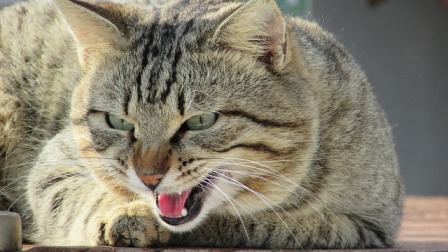Why Do Cats Chatter?
Why Do Cats Chatter?
For many cat owners, a cat that sits by the window, staring at the birds is the common image. With this image, cat chattering is inseparable. It appears whenever a bird whizzes in front of the cat’s eyes. But, why do cats chatter? What this chattering means to them? Some speculate that cats chatter because of the frustration that creates an unobtainable pray. Others think that cats produce these weird sounds because they anticipate hunt and prepare to bite their preys. In many studies, scientists found out that cat’s wild ancestors also possess these strange sounds that had been a part of their hunting skills. Moreover, today’s domestic cats have not been never fully domesticated. Therefore, it is not surprising that they still retain the old behavior pattern that puzzles all cat owners and feline experts for years. To explore further this issue, the following articles give us some ideas about the question: Why do cats chatter? The first excerpt is from the article “Cat Chat: Understanding Feline Language” and the second from “Does Seeing Birds Make Cats Happy or Anxious?”
Why Do Cats Chatter?
Chattering, chittering or twittering are the noises your cat makes when she’s sitting in the window watching birds or squirrels. Some experts think that this is an exaggeration of the “killing bite,” when a cat grabs her prey by the neck and works her teeth through the bones to snap them.
You may observe that when watching birds, cats tend to make a bizarre sound that is similar to “chattering.” The subtle sound may be one of anxiety — your cat could be upset that he cannot access the bird. In this type of scenario, bird-watching can indeed trigger anxious feelings in cats. Also, in the wild, when a cat captures a bird, he may kill it by biting its neck. The rattling sound could be a way for a feline to emulate that victorious moment — all from the cozy confines of your home.
Apart from these explanations, some feline experts think that cat chattering reflects cat’s excitement of its future successful hunt. According to them, we can count on this behavior in cats and encourage them to play. Hunting a toy brings a cat as much joy and excitement as in real chasing prey. It is natural and instinctual part of being a cat. Cats need to exercise and brush their hunting skills. Thus, the play represents the central part of taking care of a cat. The play is necessary for the development of cat’s cognitive skills and self-esteem. It provides cats with feelings of pleasure and is good to keep the cat’s ideal weight.










